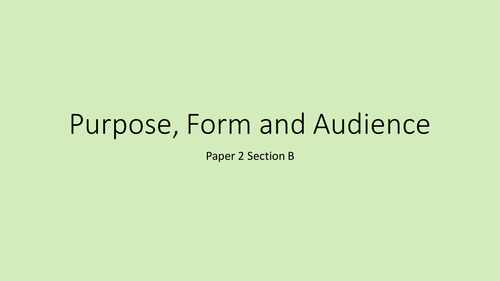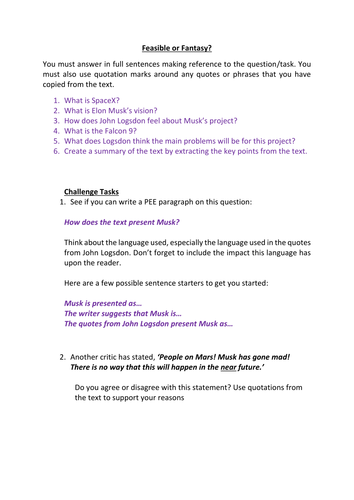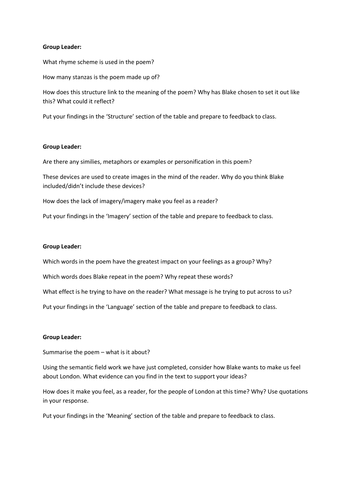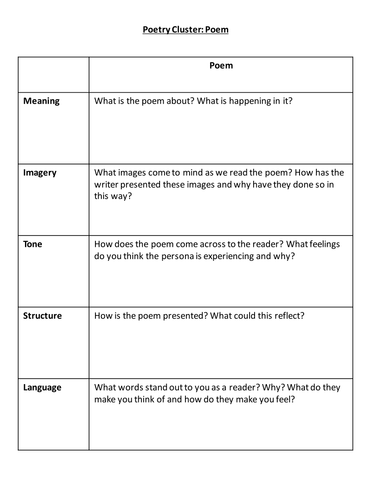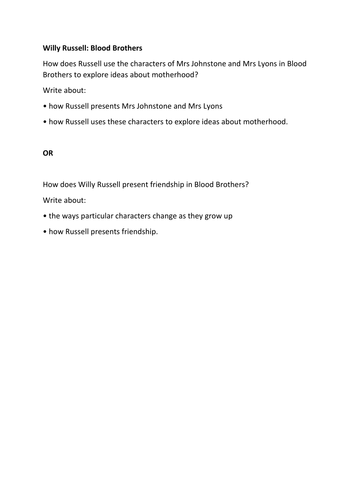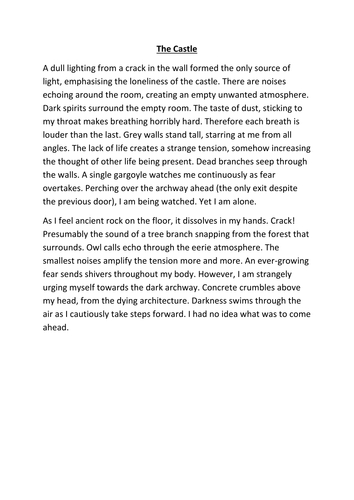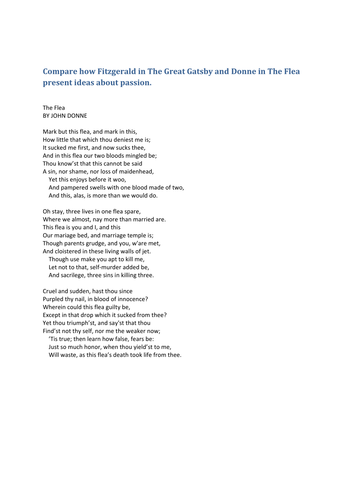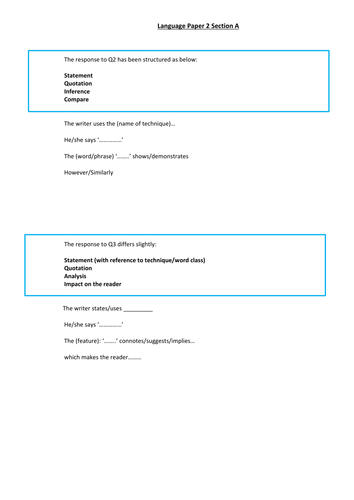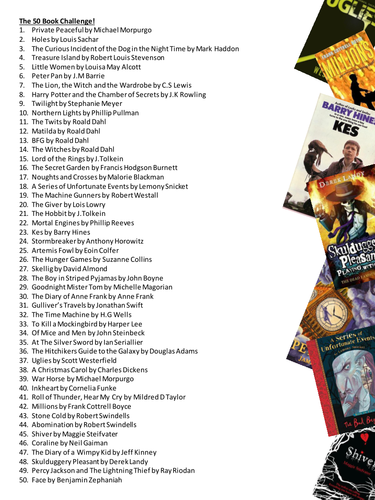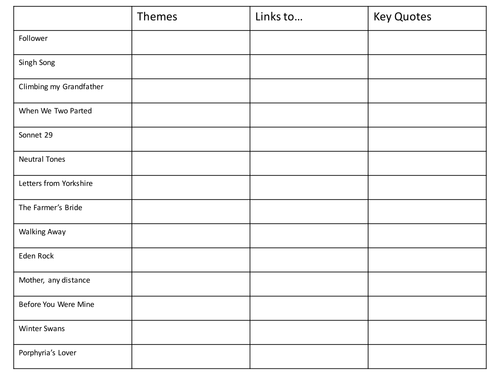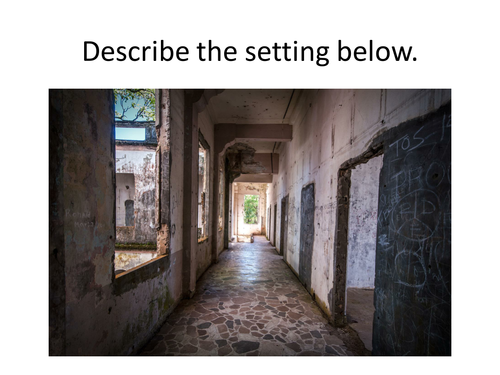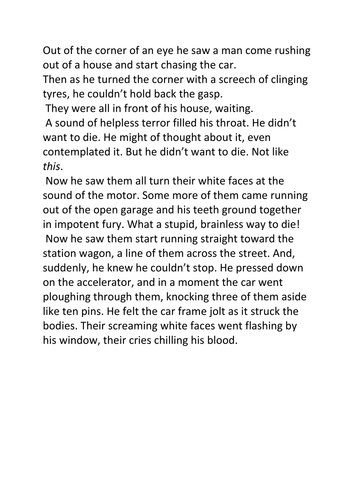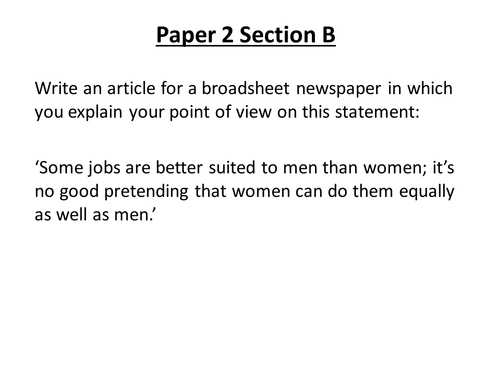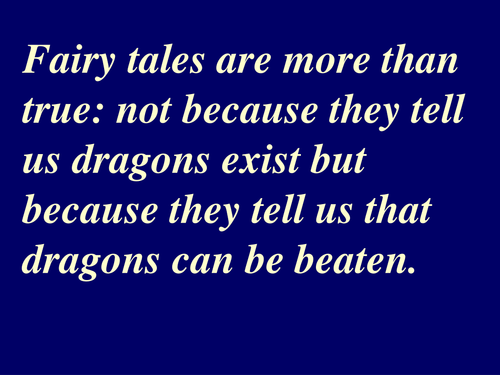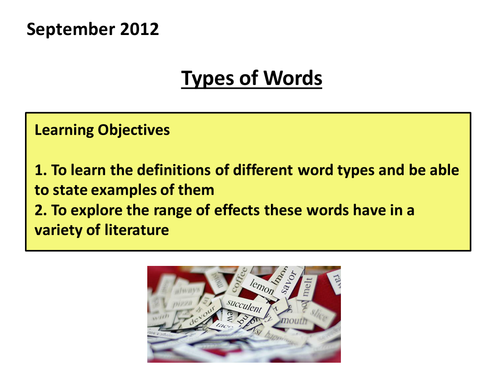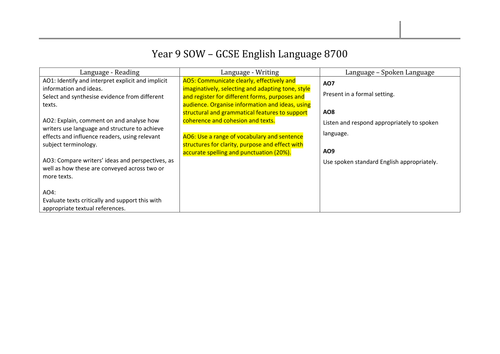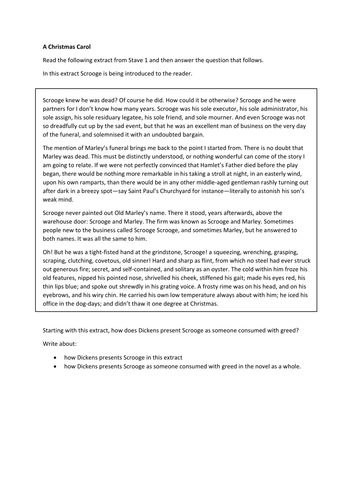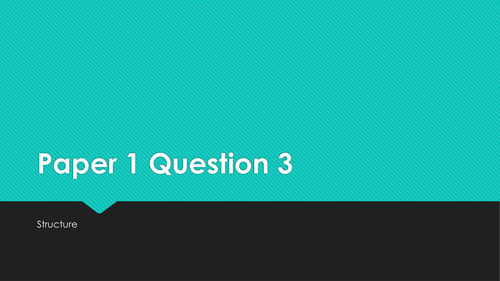
77Uploads
30k+Views
4k+Downloads
English

New Spec: AQA Literature A Paper 2B Section B - Assessment Tasks for Spies
Six assessments, or possible homework tasks, which can be dropped into any KS5 new spec scheme of work for Spies. The assessments use the format of the exam paper (compare the significance of...), which means that you can use them along side of any other texts that you are teaching.

GCSE Englsih Language P2SB Revision: Purpose, Form and Audience
This resource takes students back through the requirements of each text form. It reminds them of the formal language that they must use and it also includes five different tasks to complete to practice these forms. The activities are based on what the students may be going through on the run up to the exams.

Quotations Task - Differentiated
This is a science based task that is aimed to engage students that prefer this subject to English. Sometimes these students may make the same errors in their work, such as not selecting relevant textual evidence to support their points, and this task attempts to engage them in to English and securing this skill, whilst still providing challenge for the more able. These more challenging questions do link to the new GCSE Language papers.

AQA GCSE Literature Power and Conflict Poetry Anthology: Blake - London AO2 Focus
Lesson for Blake's London.
This lesson uses groupings, with differentiated tasks, so students are encouraged to work independently from the teacher. This task is best suited to a more able group, however it can be broken down into two or more lessons for a less able group. A copy of the poem and a glossary is included with this resource.
For the introductory task, students should fold a piece of paper until they have 16 squares. As each line of the poem is read to them, they should select one word that interests them. These words then need to be grouped to create semantic fields, which is the way I have used to get into this poem.

English Literature: Poetry Analysis Worksheet
This worksheet is aimed at LA/MA students. It gives them a structure to use when analysing poetry from the anthology and also when comparing two poems. They can also use the MITSL structure when approaching an unseen poem. The main aims of these worksheets is to give LA/MA students a consistent structure to use to help them feel more comfortable when approaching this aspect of English Literature.

GCSE English Literature: Blood Brothers Practice Exam Questions
Ten questions in total on Blood brothers. The questions are presented in a similar style to the exam where an option of two questions are given. The questions explore a range of characters and themes.

KS3 English Descriptive and Narrative Writing Resources
This resource pack contains three Gothic extracts from students' work that can be used in a variety of ways. I've found that asking students to read them and then rank them, in order of the most effective, starts some excellent discussions.
Also included are two sheets that they can stick in their books and refer to throughout the year. One encourages them to expand their use of sensory related vocabulary and the other reminds them of different techniques they could use in their writing.

New Spec A Level English Literature A: The Great Gatsby Exam Style Assessment Tasks
Six exam style tasks based on The Great Gatsby. Three of the tasks have been structured in the same way of Section A of the exam (Examine the view...), which allows these ones to be used early on in a scheme of work or set as homework. The other three assessments have been set up as Section C tasks, however the students are asked to compare Gatsby to one of the poems from the pre-1900 poetry anthology. This allows teachers to assess the knowledge of the class on both text types prior to starting exam practice.

8700 AQA GCSE English Language Paper 1 and Paper 2 Section A Question Structures and Sentence Stems
Suggested question structures and sentence stems for the new specification English Language papers. This resource can either be included in a revision booklet, glued into class books for students to refer to in class or be used to help scaffold and support student responses. It would also be useful for intervention, especially if the person running it is not a subject specialist.
An outline, for students to refer to, is also included in this resource. It state how many marks each question is work and what the question will ask them to do.
It is a straightforward resource, but it can be used in a range of situations and for a range of purposes.

Reading Challenges for KS3
Book challenges and short tasks to engage readers. These resources can be printed and used in the library or they can be used alongside of the AR reading programme.

GCSE English Literature AQA Love and Relationships Poetry Revision Tables
Four different tables that can be used for revision of this cluster. They consider themes, language, structure and making links between the poems. Four have been included to cater for different abilities and to also ensure maximum flexibility for teachers in the delivery of this course.

English Language: Paper 1 Section B Tasks
Thirteen narrative/descriptive tasks that could be easily dropped into a current scheme of work. They could also be used as stand alone activities/assessments/cover lessons or as homework tasks. All tasks have an image to help support learners.

Analysing Language Worksheet
One worksheet that works for fiction/non-fiction. It shows students the 'steps' in analysing language in a clear way. It moves from literal meaning to connotations and ends with the impact on the reader/audience. A clear framework which can be used to scaffold/support students at various stages of their learning. Can be used for KS3 or 4 and can easily be adapted to the life after levels programme your school uses.

Extracts for Reading Tasks
Eight different articles and extracts that can be used for creating stand alone lessons on reading skills. They can also be used within schemes of work, including new specification schemes, to work on reading skills. They can also be used for writing models to develop writing skills. This resource is a bank of extracts and articles, which are flexible to the needs of teachers.

New Spec GCSE English Language Paper 2 Section B Tasks
Thirteen tasks based on Paper 2 Section B. These tasks can be dropped in to any scheme of work, be used for assessments or homework.
Could also be used in any opinion writing scheme (KS3 and KS4).

Coraline Scheme of Work Resources
Resources for Coraline SoW. Includes all powerpoints/worksheets referred to in the scheme, which is available separately. The PEE framework is referred to in this scheme and also the mnemonic AFOREST.
There are some extracts which need resourcing separately such as the poems Jabberwocky, Nettles and Praise Song for my Mother. As well as this, you will need the opening to Rebecca, Kit's Wilderness, extracts from I am Legend and Old Major's Speech from Animal Farm.

Literacy Scheme: 8 Lessons
A scheme of learning that focuses on improving literacy. The scheme focuses on sentence structures, punctuation and vocabulary to match the stronger focus on SPaG in the new curriculum. This scheme is much more suited to LA/MA/intervention students rather than HA students.
There are lots of visual cues to use as a springboard to writing and a quiz that ca be used at the start and the end of the scheme so that students can see the improvements they have made.

English Language: Narrative Writing Scheme of Work and Resources
An eight lesson scheme for narrative writing with all resources included. The scheme shows how you can differentiate for all learners and the tasks are based on the new specification (exams from 2017). This scheme is aimed at Y9 students to give them an introduction in how to write narratives.

GCSE English Literature: A Christmas Carol Practice Exam Questions
Five practice exam questions for A Christmas Carol. A range of themes have been covered in these questions such as social injustice, Christmas and redemption. These can be used for class assessments or even planning practice.

GCSE English Language: Paper 1 Question 3
A helpful mnemonic to help students understand what structure is and what they can write about in their exam response. There is no extract included, which allows teachers to use something they are familiar with. It can also be easily embedded into a walking talking mock or practice exam feedback. There is a generic peer assessment at the end, which could be altered to specific levels easily.


